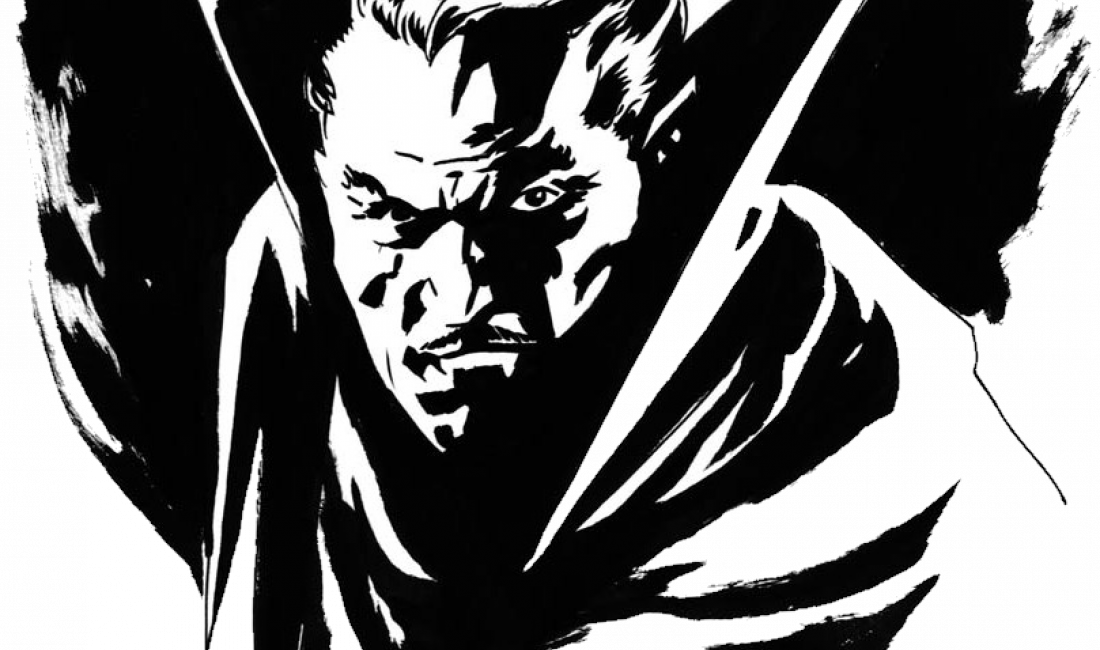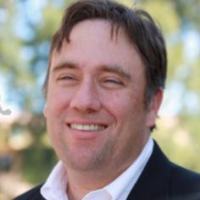'Democracy and vampires have much in common' says 600-year-old count
This column is available in Romanian here. Art Credit; Public domain via Wikimedia. This piece was co-produced with Zócalo Public Square.
By JOE MATHEWS
I emailed Dracula’s people because I was heading to Romania, for a global democracy forum that I help lead.
While I’m in Bucharest, I asked, could I take the train up to Transylvania and spend a day chopping it up with the count? After all, he’s been around for 600 years, and has seen many, many dark times for governance and democracy.
In reply, I got a cryptic text telling me to arrive by midnight at an address in Beachwood Canyon, high in the Hollywood Hills above L.A. The place was invisible from the street, and so dark I had to turn on my iPhone flashlight to find the door.
But then, at my knock, the world’s most famous vampire opened the door. He ushered me to a chair in a room lit only by fireplace.
Dracula: Welcome to my castle in the air. Now, can my servant Renfield get you something to drink? Want to join me for a pint of O-negative?
Me: Thanks, but I’m fine, Count.
Dracula: Please, call me Vlad. And suit yourself (pouring blood into a glass). I need a drink from a stiff before discussing democracy these days.
Me: I hoped we’d be meeting in Eastern Europe and talking about June’s European elections and rising authoritarianism there. What are you doing in L.A.?
Dracula: Romania will always be home, but many decades ago, I realized that Hollywood would never stop calling. I used to stay with my friend Bela Lugosi, right down the street, but he got tired of the LAPD knocking on the door asking for me every time some teenage girl got a hickey. So, I had this place built. It’s small for a castle, but I never went and had a family like Gomez Addams.
It’s more than paid for itself. To date, more than 80 films have been made about me. Yes, those Netflix execs—who suck more blood in a half-hour pitch meeting than I have in my whole existence—don’t pay well. But it’s amazing how much work my fellow vampires at CAA can get me for uncredited script doctoring and story consulting.
I advised the cast during the New Orleans shoot of Renfield, a 2023 comedy with Nicholas Cage playing me. Nick and I hit it off. I’m not saying he’s a vampire—I respect his privacy—but I will say he didn’t have to do much to get into character.
Me: Do you see the story of Dracula having an impact on how the world runs?
D: Sometimes I worry I have too much impact. Porphyria—which they call the vampire disease, because you have trouble with sunlight and sometimes must retreat into darkness—used to be considered rare. Now, with everyone up half the night on their screens, people are becoming more like me.
Despair has its own calms, I suppose. And I enjoy a long night. But the fact that we’re so atomized makes democracy and self-government quite difficult.
Me: Vlad, you’ve been around longer than anyone living. In human form, you lived as the ruthless ruler of Wallachia in the 1400s, famous for your cruelty toward your enemies. Then, vampires became an obsession in the 1700s and you emerged publicly in Bram Stoker’s 1897 novel Dracula and have been famous ever since. In all that time, what has changed the most in how humans govern themselves?
D: What’s changing the most is the very nature of what it means to be human. And that’s changed self-government and everything else.
We not only live longer, but we never go away. I died in 1476, yet I’m still around, sort of human. AI means that humans can stay alive digitally long after our human bodies are dust. We are all vampires now.
Which means that humans need to take a much longer view and build more flexible institutions. Because humans and vampires alike are changing so fast. Look at me. I started as this figure of fear—of violence, of disease. I was the bad, undead guy. But now in popular culture, I’m the cool Gothic mainstay, an outsider. Just look at how I’m portrayed by younger, better-looking actors.
The secret of my success is flexibility: I don’t fit into categories or labels. I’m good and I’m bad, real and unreal, dead and alive. And this makes me emblematic of what the British literary historian Nick Groom, in The Vampire: A New History, calls our “vampirocene era… in which the human race has the transformed the world, but in doing so has also lost its primacy.”
Me: Vampirocene? So, you’re saying the world is getting better?
D: It’s definitely more open, inclusive and democratic. I know that sounds strange—Dracula, optimist. But that’s only because so many people are still thinking too short-term.
Look at Romania. Just two generations ago, we were ruled by a far crueler villain than I ever was, Nicolae Ceausescu, a communist dictator who built a society nearly as totalitarian as North Korea. But we learn from failure, not from success. Now Romania is in the European Union and the eurozone, and we have a real democracy, despite the pressures coming from that other Vlad, who impaled far more people than I ever did, running Russia.
Me: Aren’t you worried about potential right-wing gains in June’s European elections?
D: Sure. The world seems full of good men—but there are monsters in it.
There are always people trying to scapegoat democracy for our problems. There are always tyrants trying to kill off democracy.
Just like there are always people who hate vampires. Some hate us so much that, like that Buffy chick, they seek to slay us.
But no matter how hard they try to kill us, we vampires keep coming back, because people want us. Take Interview with the Vampire—it was a book, then a movie, and now it’s a TV show, all huge hits! The same thing is true of democracy. Look at Turkey—its national government goes theocratic and authoritarian, and yet its cities respond by becoming more democratic.
Democracy and vampires have a lot in common.
Me: Do you really think vampires can inspire a more democratic world?
D: If an undead guy with a story as ugly and bloody as mine can still bring magic into the universe, then I’m quite sure that the living can collectively recognize that knowledge is stronger than memory, and conquer earth’s scariest problems together.




